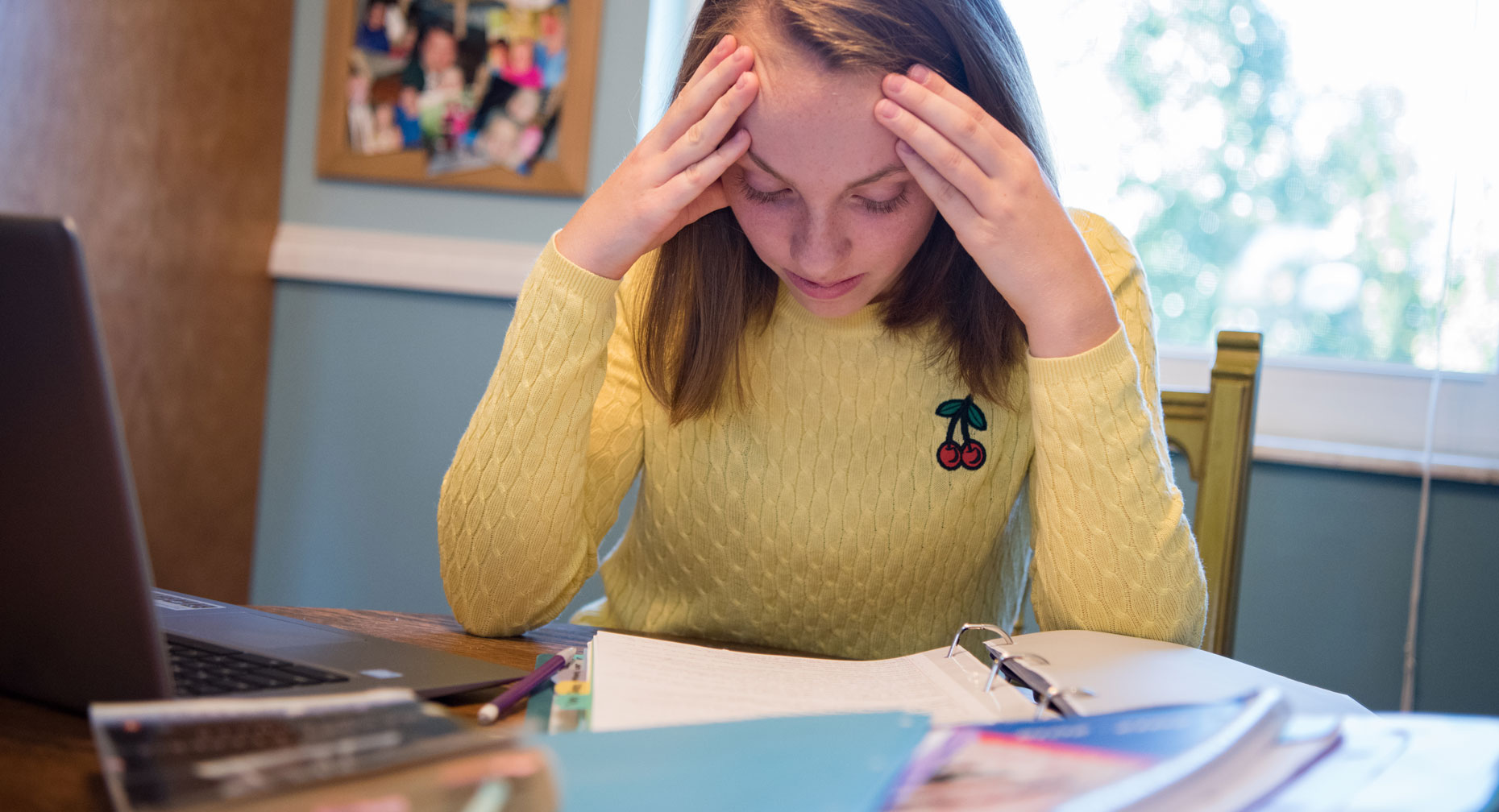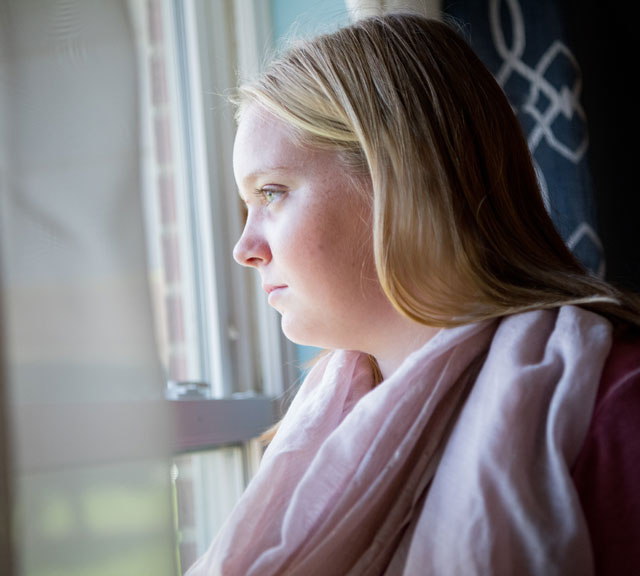Your Anxious Teen: Normal? Or Cause for Concern?

Answer a few questions and we'll provide you with a list of primary care providers that best fit your needs.
It’s normal for teens to experience anxiety. But when the anxiety becomes irrational and gets in the way of life, it’s considered a disorder. Anxiety disorders are characterized by:
- Prolonged and intense worry
- Worry that is irrational to the situation
- Focusing on things that might happen
- Feelings of impending danger
- Trouble concentrating on day-to-day events
It’s normal for your teen to feel uneasy about an exam and stay up late studying. But when he’s so anxious that he can’t eat, sleep or relax; feels sick; and misses social events in order to study, it may be labeled a disorder.
It’s normal for your teen to feel anxious about a boating trip. But her behavior may be a disorder if she feels sick with worry about falling overboard; her heart races for days leading up to the trip; and she loses sleep thinking she’ll get hurt somehow.
Be patient, positive, supportive and never judgmental. Talk openly with your teen about the process.
Some Anxiety Disorders Cause Unique Behavior
Most anxiety disorders are considered “generalized” with behavior like that described above. But some are unique:
- Obsessive-compulsive disorder (OCD): He constantly obsesses about his safety or about germs. He may wash his hands excessively, check the locks and blows out candles over and over, perform tasks in a certain order and get upset if the order is disrupted.
- Panic disorder: She panics for no apparent reason, with symptoms that include difficulty breathing, pounding heart, dizziness, numbness.
- Phobia: He has intense fear of things that aren’t necessarily dangerous, like heights, dogs, airplanes, social situations.
- Post-traumatic stress disorder (PTSD): She can’t shake a traumatic experience and has flashbacks, nightmares, irrational fears and avoids similar events.
Successful Treatment is Definitely Possible

Doctors don’t yet understand the cause of anxiety disorders, but think it may include genetics and stressful life circumstances. The good news is that the disorders can be successfully treated.
Counseling by a professional, trained therapist will help your teen face anxiety and learn how to manage it. Your teen will learn new ways to think and act in situations that cause her anxiety. In addition to providing support, her therapist will teach new coping skills, such as relaxation or breathing exercises. Medication is sometimes prescribed as part of the treatment, but not always.
Ask your teen’s physician to recommend a therapist. Don’t be afraid to switch therapists if your teen doesn’t improve, or if she isn’t finding the sessions helpful.
How Parents Can Help
Be patient, positive, supportive and never judgmental. Talk openly with your teen about the process. Try to understand the situation, and remind your son or daughter that letting go of anxiety will give them more time to enjoy life.
Answer a few questions and we'll provide you with a list of primary care providers that best fit your needs.
Source: Anxiety and Depression Association of America; Child Mind Institute; Nemours Foundation - KidsHealth



.tmb-card-head.webp?sfvrsn=680c0961_9)
